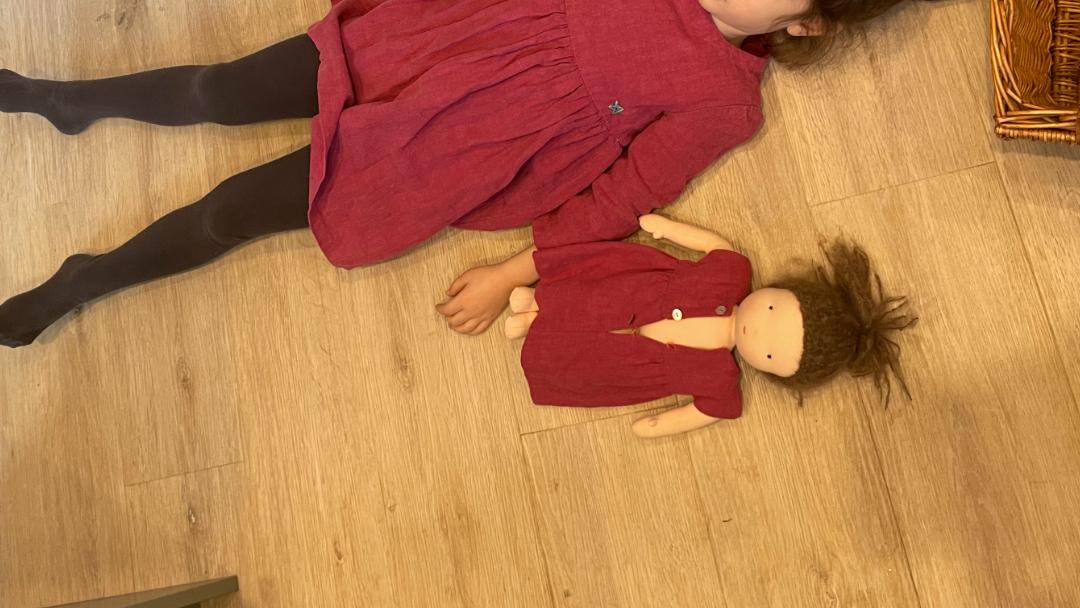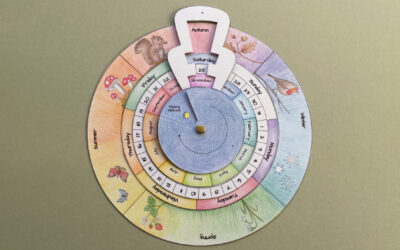Have dolls gone out of fashion?
A few weeks ago, I overheard a mother at the playground say that her daughter really loved playing with dolls at nursery and wanted a doll for her birthday, but she and her husband resisted buying her one – her words were “we’re not going there” as she gave the other mother a knowing look. I felt saddened by this, not just for the little girl, but also for dolls.
What could be behind some people’s reluctance about dolls?
Having witnessed the above exchange, I asked myself where this mother’s unease about dolls might have come from. Then I remembered a popular (and controversial) BBC documentary, No More Boys and Girls: Can Kids Go Gender Free? The documentary questioned how our society, and our toy and fashion industries, have pushed boys towards sciences, and girls towards fashion and make-up (often in the form of dolls). Studies have shown that many toys targeted at girls were still more aligned with the traditional roles of women, and that people unconsciously tend to offer those ‘female’ toys to girls. The studies also found that STEM (science, technology, engineering and maths) toys’ branding being geared towards boys could be one of the reasons why girls are less likely to go on to study STEM subjects at school or university.
STEM and gender neutral toys and games are now marketed heavily, which is of course a positive development, but could dolls in general inadvertently be given a bad rap as a result? Well, they shouldn’t be.
Why are dolls important?
Dolls are developmentally important for children. They are the oldest known toys – archaeological finds suggest that children played with dolls in ancient Rome and Egypt.
While our society has historically valued ‘male’ skills more highly than ‘soft’/’female’ skills like kindness, empathy, nurturing and caring, these ‘soft’ skills are increasingly important (as well as sought after in a business context).
So in our quest for eliminating gender stereotypes from our children’s toy chests, we must be careful not to overlook the value of such ‘soft’ skills. In the same way we are trying to make STEM toys appealing to all genders, we should be making dolls more appealing to all genders.
I also feel strongly that we ought to pay attention to the signals our children are giving us: if a child (regardless of their gender) expresses a desire to play with a doll, we should absolutely enable them to do so. They may, for example, have a very real need to nurture. The choice of dolls available to us is limitless. They can be gender neutral, have any colour skin, hair, eyes and clothes. Dolls can be people of all ages, and people of all abilities.
A doll can meet many needs in children
Here are only a few of the many purposes of dolls:
- Children can take on the role of their parents when playing with dolls. Because parents make the majority of daily decisions affecting them, children can be left feeling powerless and out of control. A doll can help to flip this situation around, allowing children to take on the role of the parent, and thus feel empowered in their play.
- Doll play is completely open ended. Open ended play helps children to let their imagination flow and promotes their problem solving skills.
- Dolls are a source of comfort and help children overcome fears. For example, a parent might give a child who struggles to sleep a doll and ask them to look after it at night. Children can have dolls as their friends when they find those around them difficult to relate to.
- Parents or carers can incorporate dolls into role play with children to help them learn social skills by acting out real life situations. Dolls can help children understand their place in the world, for example by preparing them for the arrival of a new sibling in their family.
- Children learn empathy through doll play by looking after them, caring for them, nurturing them.
- Dolls can help children develop their fine motor skills, for instance by dressing and undressing them, tying their laces, doing up and undoing buttons.
- Children can learn practical, creative and problem solving skills by making items for their dolls.
This last point is one of my favourite reasons to love dolls, and I used to do this a lot as a child. I would make furniture (from wood and fabric), books (from paper), food (from salt dough) etc. I taught myself so many skills and really learnt to think creatively to find solutions.
Let’s embrace dolls!
While it’s right to make and buy toys that are more reflective of the times we live in, let’s take our dolls on this journey with us.
Let’s embrace dolls (not just physically) – they are part of what makes us human.







0 Comments